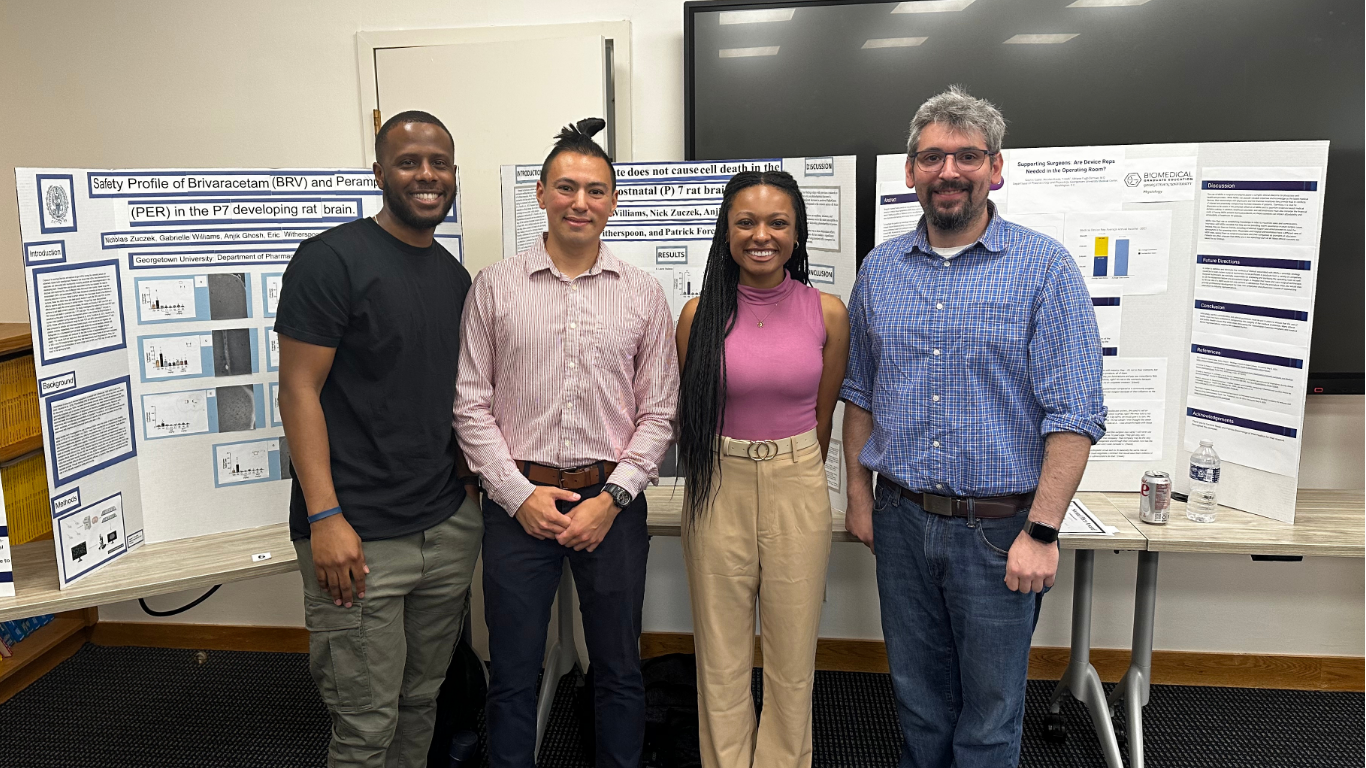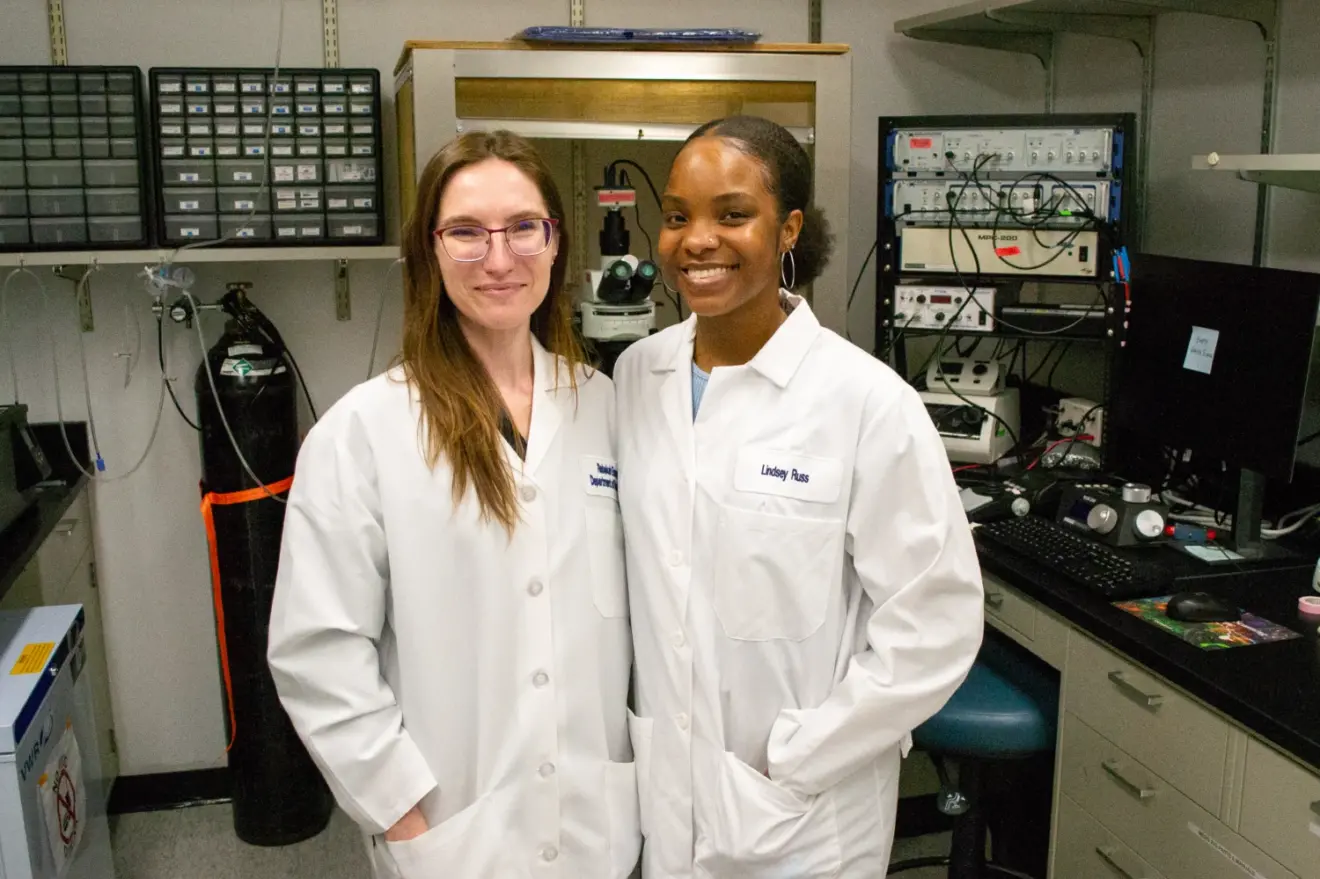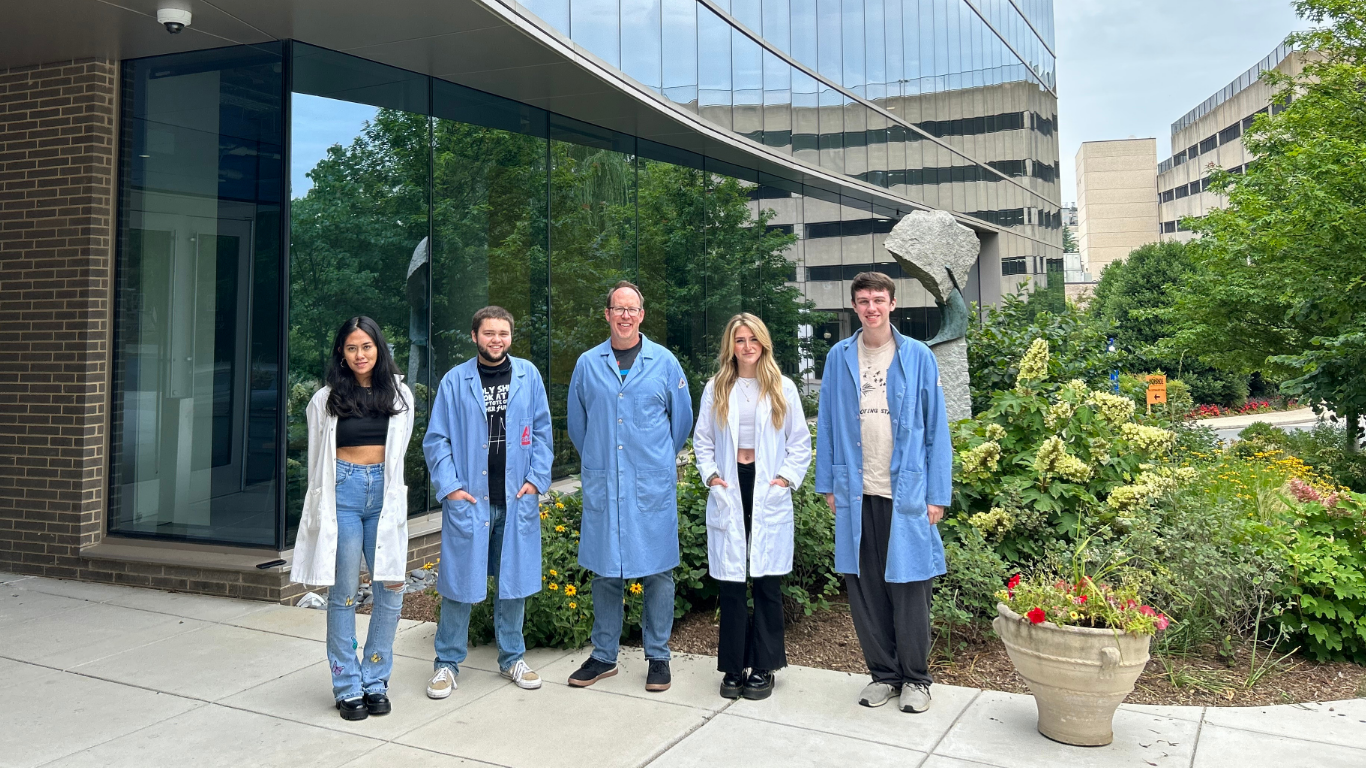A Passion for Pharmacology and Becoming a Role Model for Female Scientists
Gabbi Williams (G’23, G’29) first became interested in pharmacology during a biotechnology course in undergrad. She was learning about drug development and vaccines. And she was mesmerized.
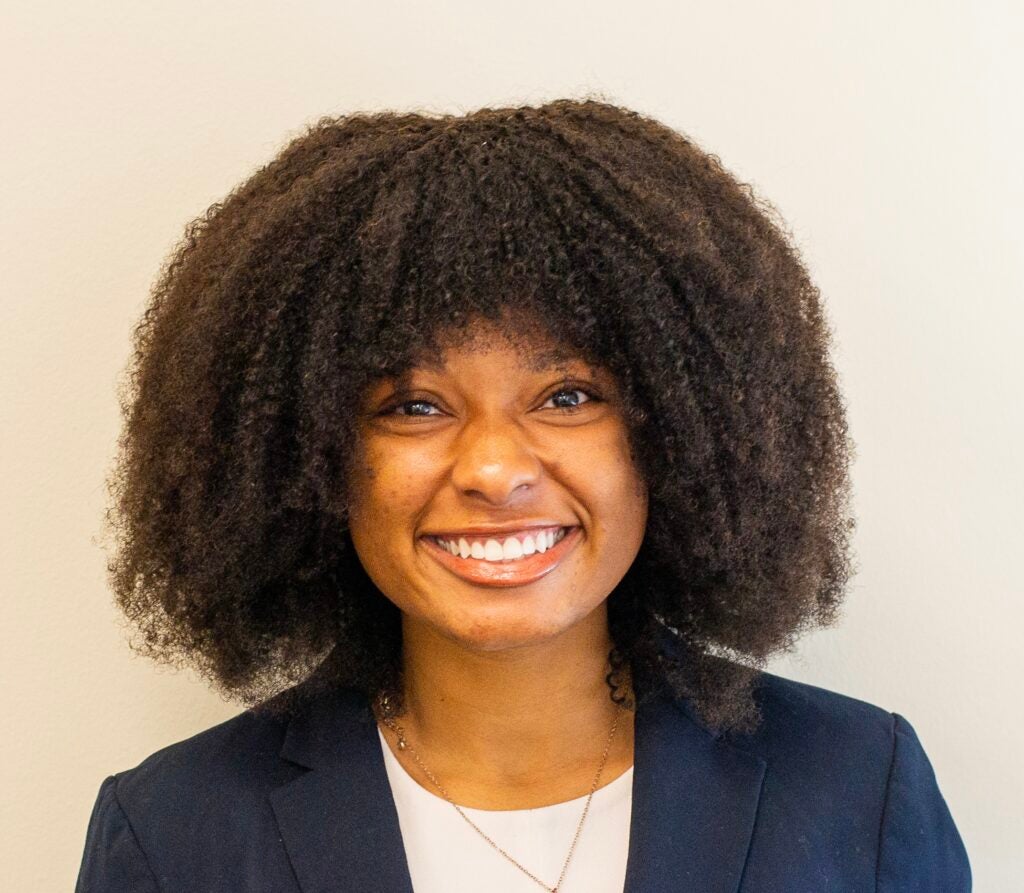
Gabbi Williams (G’23)
“I went home and did some research. It took me into a whole new world where I was able to look at how drugs affect the whole body,” said Williams.
After earning her bachelor’s in biochemistry from Michigan State University, she went straight into the one-year Master of Science in pharmacology at Georgetown.
Afterward, Williams took a gap year working as a research laboratory assistant with Patrick Forcelli studying anti-seizure medications. Here, she honed the skills for the next step in her career: as a doctoral student in the Ph.D. in pharmacology and physiology program at Georgetown.
“I can’t even put into words how much I like Georgetown,” she says. “The faculty are amazing, the student body is collaborative and the environment is so welcoming.”
This fall, she received the Patrick Healy Graduate Fellowship, which annually recruits students from backgrounds underrepresented in doctoral programs who want to pursue careers in academia, and it’s helping her dedicate her time fully toward her research.
“The fellowship is going to significantly advance my academic journey as it alleviates financial burdens for me and my future mentor. We can put more funding toward research,” Williams notes.
Learn how the fellowship is helping her achieve her research goals.
Scientific Research Interests
In addition to pharmacology, Williams has added toxicology to her academic interests. Her curiosity about how drugs affect the body, and looking closely at receptors and pharmacokinetics, is what ultimately led her to pursue a doctorate as she seeks to deepen her expertise and research skills.
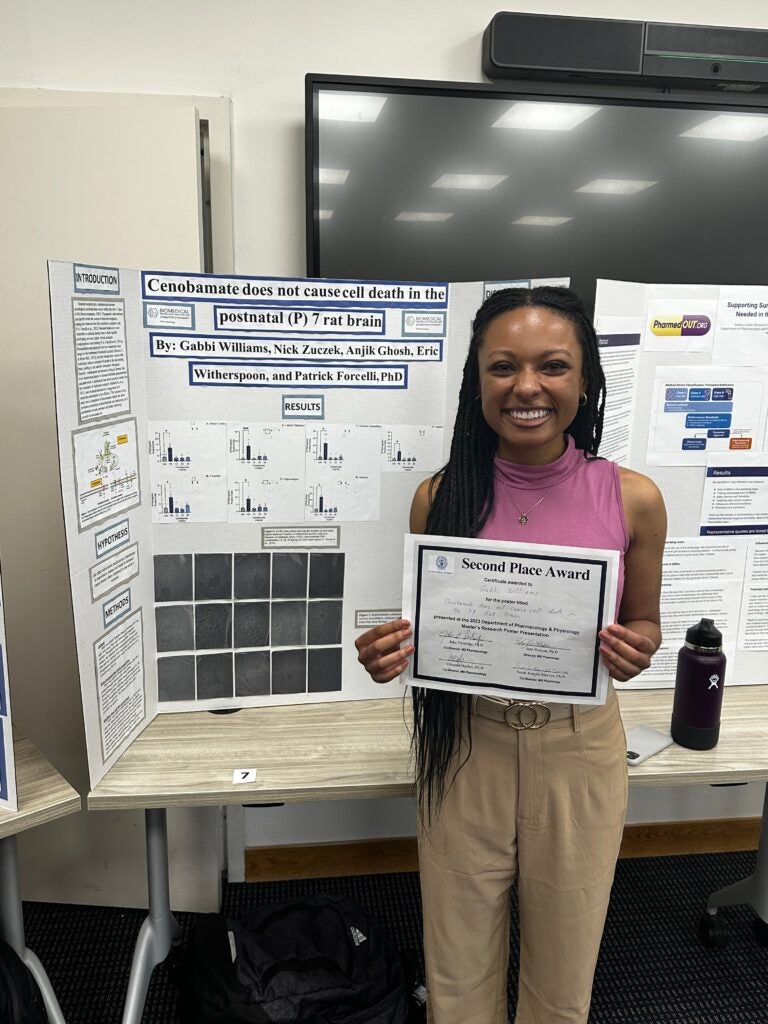
Williams holds her 2nd place award at Research Poster Day
Williams’ current research interests revolve around the brain, specifically neuropharmacology. She wants to dig deeper into the chain of events within the human body where a drug’s effect on the brain can subsequently affect other organs or organ systems.
“Every day I learn something new about the brain. The possibilities and the questions to ask are endless,” says Williams.
Williams said she’s thrilled to conduct 35 hours of research per week in the lab thanks to her program track as a researcher, and because of the financial support of the Healy Graduate Fellowship. This fall, she is completing a rotation in the Ostroumov Lab with Professor Alexey Ostroumov.
“Being part of the Patrick Healy Fellows community, I know I will gain valuable insights and new perspectives I wouldn’t have gotten otherwise,” says Williams.
From Mentee to Mentor
During her time at Michigan State, Williams connected closely with program mentors, Professors Karen Chou and Reza Nassiri, and asked for guidance on applying to graduate school. As a result, she developed practical skills in preparation for classroom etiquette, both in person and online. Williams also prioritizes having a growth mindset and passing that on to future generations.
In her first year as a doctoral student, Williams is looking forward to her grant-writing course, which she hopes will be helpful later on in her career and will allow her to understand the nuances of when to apply for certain F31 fellowships, offered by the NIH’s Ruth L. Kirschstein National Research Service Awards program. Additionally, Williams looks forward to meeting other Patrick Healy Fellows both within and outside of her program.
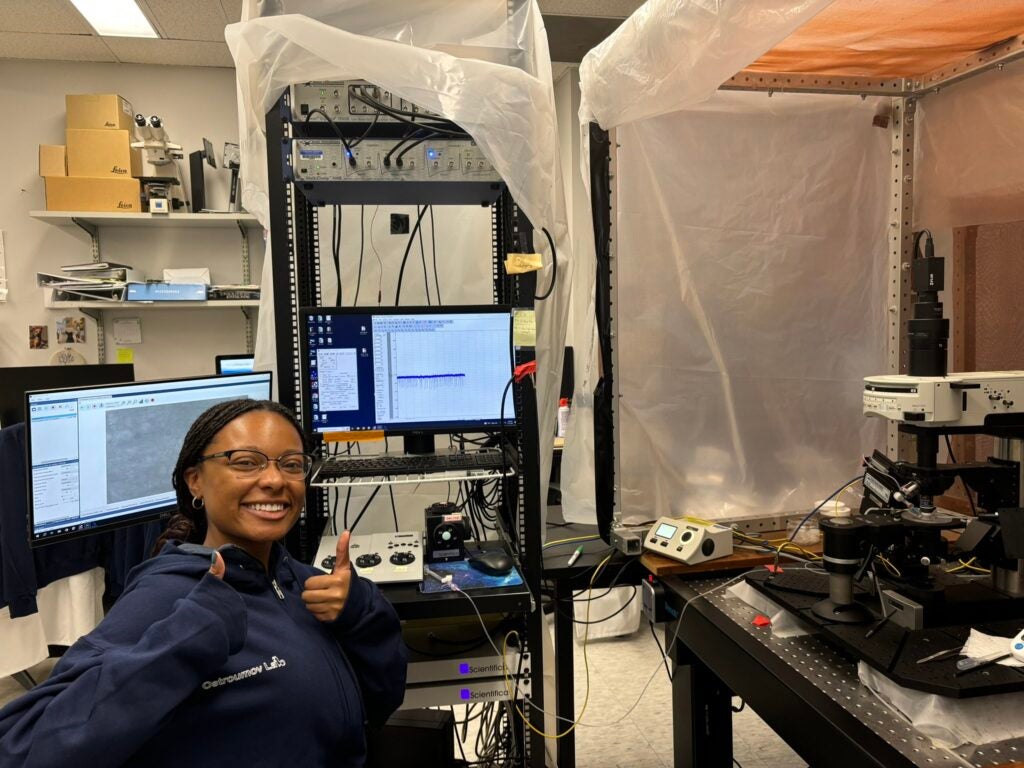
Williams patching GABA neuron
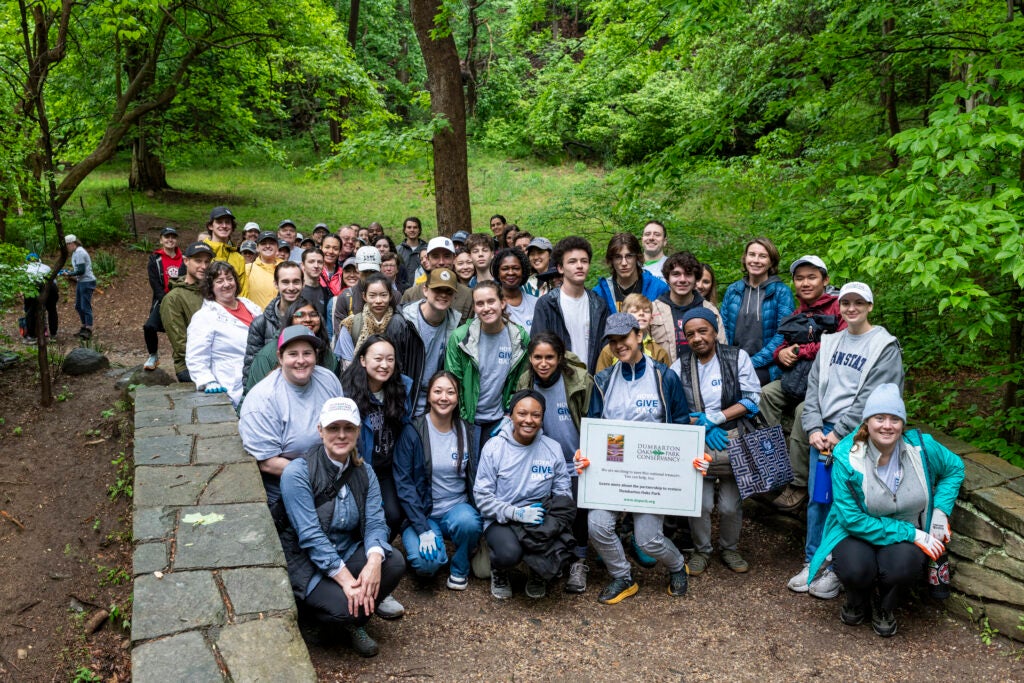
Williams at Hoyas Give Baxa
Outside the classroom, Williams enjoys baking and crocheting as a form of self-care and stress relief. She also enjoys taking part in a variety of graduate student groups across the Hilltop Campus, such as volunteering for the Hoyas Give Baxa alumni community service project.
After completing her doctoral degree, Williams sees herself becoming a professor, mentor and role model for future generations of scientists. She is excited to become a mentor not only to spread her love for the inner workings of the brain and pharmacology, but also to decrease the gender imbalance within the sciences.
Her dream school to teach at is Columbia University because of her love for New York City, its proximity to family, and its melting pot of cultures and identities.
“I want to show the younger generation that once you set your mind to anything, it is possible – despite how you look and who you are,” says Williams.
Connect with Gabbi on LinkedIn.
